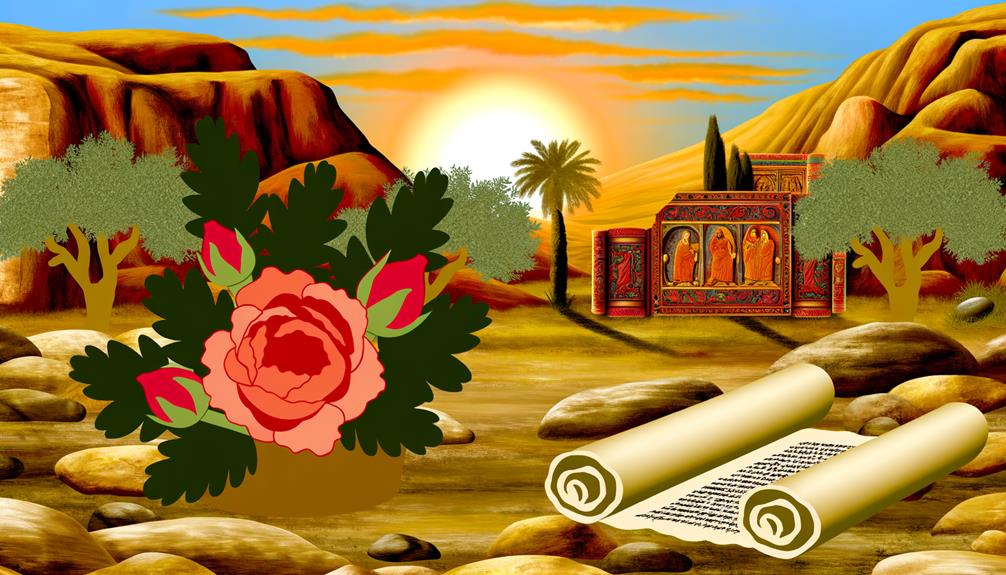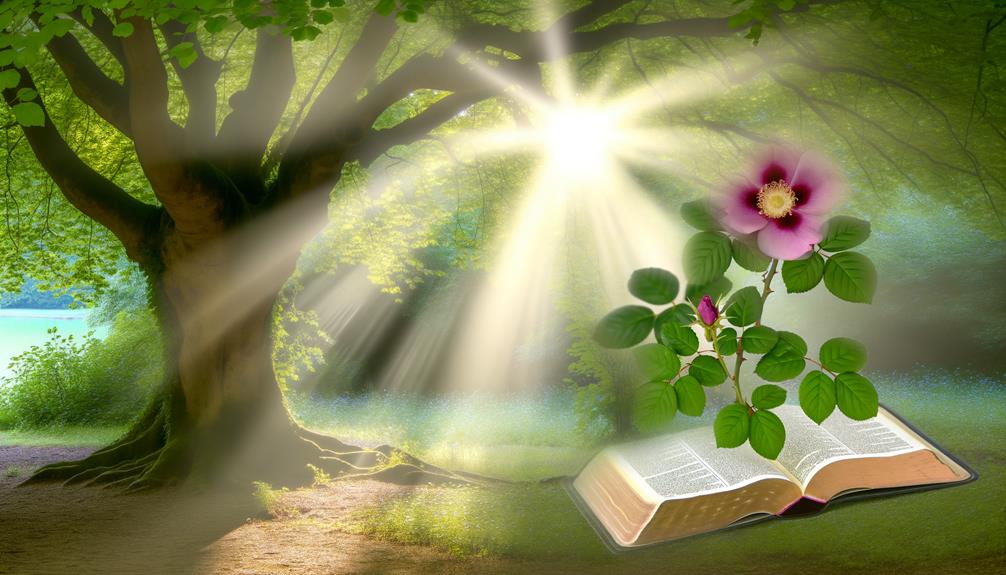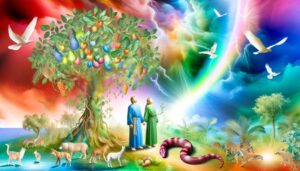Rose of Sharon Bible Verse Meaning: Beauty and Love
The phrase “Rose of Sharon,” found in Song of Solomon 2:1, symbolizes divine love, purity, and spiritual beauty. This poetic imagery emphasizes the natural splendor and spiritual significance of divine affection, juxtaposed with themes of renewal and grace.
Historically, Sharon refers to a fertile plain in ancient Palestine, contributing to its floral and botanical associations. Theologically, it is often interpreted as a typology of Christ, embodying redemptive love and purity.
This multifaceted symbolism enriches both ancient and modern spiritual understanding, hinting at deeper insights into divine love and grace within the scripture.

Rose of Sharon Bible Verse Meaning: Symbolism and Spiritual Significance in Scripture
| Aspect | Description |
|---|---|
| Key Bible Verse | Song of Solomon 2:1 – “I am the rose of Sharon, and the lily of the valleys.” |
| Literal Meaning | Refers to a flower found in the Sharon plain of Israel, symbolizing natural beauty and flourishing life. |
| Biblical Context | Spoken by the Shulammite woman in Song of Solomon, expressing humility and comparing herself to common yet beautiful flowers. |
| Spiritual Symbolism | Represents beauty, purity, love, and spiritual growth. In Christian interpretation, often seen as a symbol of Christ’s beauty and redemptive love. |
| Connection to Christ | While not directly referring to Jesus in the Bible, many Christian traditions interpret the Rose of Sharon as a metaphor for Jesus’ divine nature and grace. |
| Application for Believers | Encourages reflection on inner beauty, humility, and the recognition of Christ’s presence as a source of spiritual nourishment and love. |
| Modern Interpretation | Symbolizes resilience, beauty amidst adversity, and the enduring nature of divine love in both spiritual and personal growth contexts. |
Biblical Context

Rooted in the Song of Solomon 2:1, the term ‘Rose of Sharon‘ presents a rich tapestry of biblical imagery and symbolism. This poetic book, often interpreted as an allegory of divine love, utilizes botanical metaphors to convey beauty, purity, and divine affection. The significance of the Rose of Sharon extends beyond its floral beauty, as it embodies the theme of intimacy found throughout the text. In the context of a song of songs biblical interpretation, it symbolizes the deep connection and longing between the divine and humanity. This imagery invites readers to reflect on the nature of love and the sacred relationship that exists within faith.
The ‘Rose of Sharon’ is juxtaposed with the ‘lily of the valleys,’ symbolizing natural splendor and spiritual significance. Analyzing the verse within its scriptural context reveals profound insights into the nature of love and the relationship between the divine and the faithful.
The imagery of the ‘Rose of Sharon’ transcends mere floral representation, embodying themes of renewal and divine grace, integral to the theological and literary fabric of the biblical text.
Historical Background

The historical background of the term ‘Rose of Sharon‘ necessitates an exploration of ancient Near Eastern flora and cultural symbolism to fully understand its significance in biblical literature. The phrase appears in the Song of Solomon 2:1, and its identification has been a subject of scholarly debate.
The term ‘Sharon’ refers to a fertile coastal plain in ancient Palestine, renowned for its lush vegetation. Botanical historians suggest that the ‘rose’ might not refer to the modern rose but potentially to flowers like the crocus, tulip, or lily, which were prevalent in the region.
Understanding this historical context provides insight into the ecological and cultural milieu that influenced the biblical authors, thereby enriching our comprehension of the text.
Symbolism and Imagery

In biblical literature, the ‘Rose of Sharon‘ serves as a potent symbol, embodying themes of beauty, love, and divine splendor. This floral imagery, found in the Song of Solomon 2:1, conveys the delicate yet resilient nature of divine love, paralleling the enduring and nurturing qualities attributed to God’s relationship with humanity.
The ‘Rose of Sharon’ may also symbolize the purity and grace inherent in spiritual beauty, transcending mere physical allure. Additionally, its mention invokes a sense of an ideal, unblemished landscape, suggesting a domain untouched by human imperfection.
This multifaceted symbolism enriches the text, providing layers of meaning that elevate the ‘Rose of Sharon’ beyond a simple botanical reference to a profound emblem of spiritual and aesthetic ideals.
Theological Interpretations

Scholars have long debated the theological implications of the ‘Rose of Sharon,’ delving into its representation of Christ’s redemptive love and its significance within the broader context of biblical soteriology.
In Christian theology, the ‘Rose of Sharon’ is often interpreted as a typology of Jesus Christ, symbolizing purity, beauty, and the ultimate sacrifice for humanity’s salvation. This metaphor, found in Song of Solomon 2:1, is seen as foreshadowing the coming of Christ and His role as the savior.
Theologically, it underscores themes of grace and divine love, resonating with the imagery of Christ as the ultimate bridegroom in the New Covenant. Such interpretations enrich our understanding of Christ’s redemptive mission and its foundational place in Christian doctrine.
Modern Relevance

Contemporary believers often find profound personal and communal significance in the ‘Rose of Sharon’ metaphor, viewing it as a timeless emblem of divine love and spiritual renewal within modern faith practices. This enduring symbol resonates across various contexts and applications:
- Personal Growth: Individuals interpret the metaphor as an invitation to cultivate inner beauty and spiritual depth.
- Community Building: Faith communities see it as a call to foster unity and collective spiritual growth.
- Worship Practices: The metaphor enriches hymns, sermons, and devotional literature, enhancing the worship experience.
- Cultural Identity: It serves as a cultural touchstone that connects contemporary believers to their biblical heritage.
This multi-faceted relevance underscores the enduring impact of the ‘Rose of Sharon’ on modern Christian life.
Conclusion
In summation, the ‘Rose of Sharon‘ verse, nestled within the Song of Solomon, encapsulates profound symbolic and theological dimensions, intertwined with historical and cultural layers.
This emblem of beauty and purity, while rooted in ancient scripture, continues to evoke rich interpretive possibilities in contemporary theological discourse.
Indeed, as a metaphorical bloom, it perpetually invites scholars to explore its enduring significance, bridging the temporal divide between antiquity and modernity.






